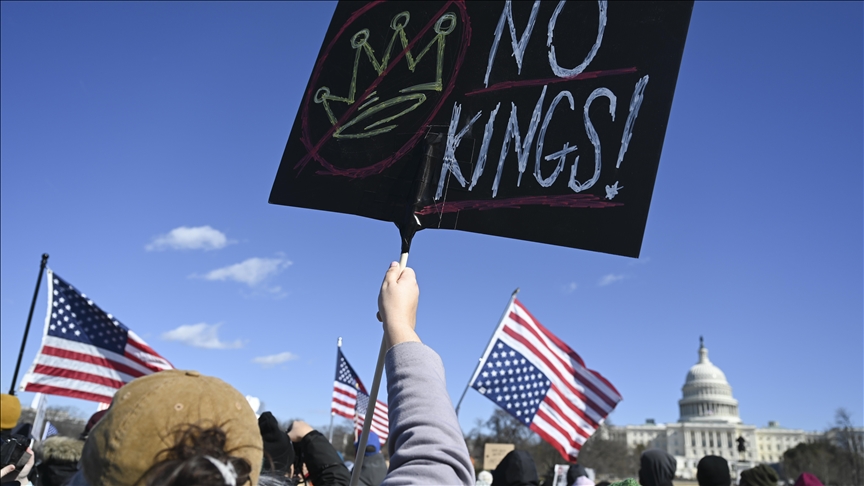Federal judge allows Trump's workforce reduction plan to proceed amid legal challenges
Judge Christopher Cooper rules labor unions must seek legal recourse elsewhere, denying their request to halt federal job cuts as thousands face termination

ISTANBUL
A federal judge on Thursday permitted US President Donald Trump’s initiative to reduce the federal workforce to proceed amid ongoing legal battles, rejecting labor unions' request to halt the dismissal of federal employees and other measures affecting government workers.
US District Judge Christopher Cooper, serving in Washington, DC, ruled in a 16-page decision that he could not grant the unions' request for relief due to a lack of jurisdiction, CBS News reported.
Cooper said unions must pursue their legal challenges through the Federal Service Labor-Management Relations Statute and submit their claims to the Federal Labor Relations Authority, as outlined by Congress.
However, the judge acknowledged that the initial month of Trump's administration "has been defined by an onslaught of executive actions that have caused, some say by design, disruption and even chaos in widespread quarters of American society."
He also pointed out that it is unsurprising for federal judges to issue mixed rulings—some blocking Trump's actions while others allow them to proceed as legal cases unfold.
Federal judges must make decisions fairly based on the law and past cases, no matter who is involved in the lawsuit or how their rulings might affect ordinary people, he remarked.
The five unions representing federal workers requested that Judge Cooper issue a temporary order to block the termination of probationary employees, large-scale government workforce reductions, and the renewal of the president’s "deferred resignation program."
The program allowed federal employees to resign while keeping full pay and benefits until Sept. 30. The deadline was Feb. 12, and about 75,000 workers accepted, according to the White House.
The unions claimed the president’s policies—firing probationary employees, the deferred resignation program, and large-scale workforce reductions—violate federal law and the separation of powers.
Union lawyers warned that over 500,000 employees could be affected.
They noted that 220,000 were probationary, while 345,000 were deemed nonessential during Trump’s first-term government shutdown. Nonessential workers were targeted for dismissal under an executive order directing agency heads to prepare for "large-scale reductions in force."
Over 12,000 federal workers have already been or are expected to be fired, including more than 6,000 at the IRS, who are set to be dismissed by the end of the month, a source familiar with the agency’s plans said, according to CBS News.
The unions argued in their filing that "a mass reduction of roughly twenty-five percent of the federal civilian workforce is unprecedented" and questioned whether the Executive Branch can legally weaken agencies established, funded, and assigned missions by Congress.
The Justice Department urged the court to reject the unions' request, claiming that they had not proven they would suffer harm without intervention.
In its filing, department lawyers stated that "the president is charged with directing the Executive Branch workforce" and has decided that agency leaders should work to "streamline and modernize the workforce" through voluntary resignations, probationary employee removals, and reductions in force.








